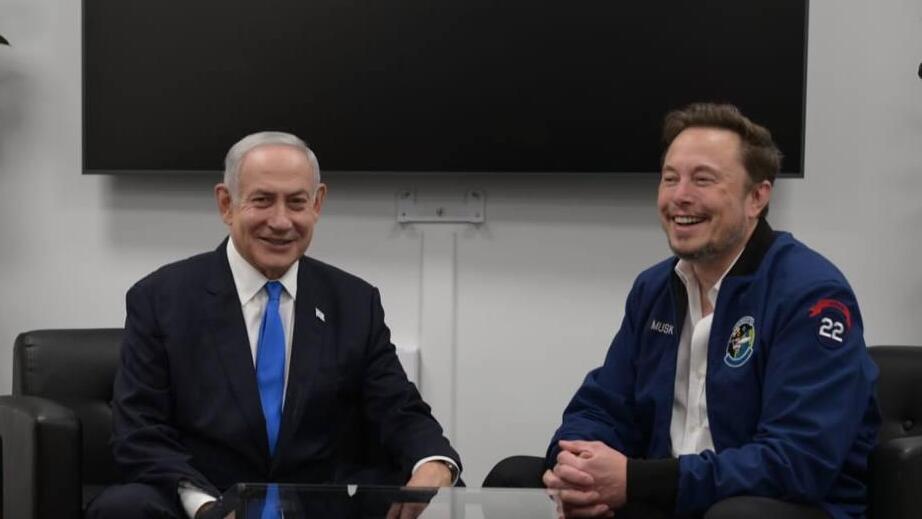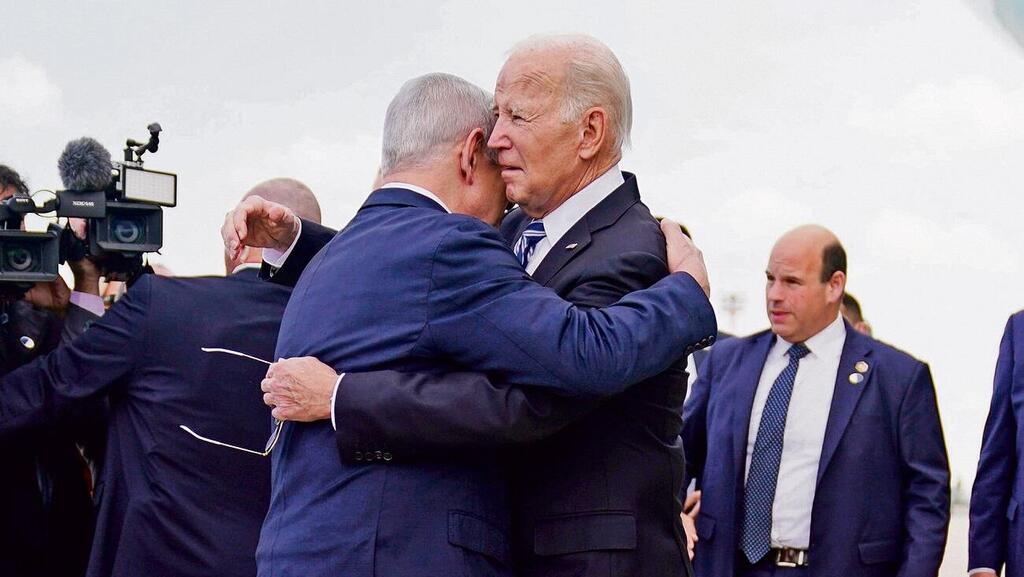Getting your Trinity Audio player ready...
The ongoing war highlights the transformation of technology giants, once American-based corporations, into international entities. Within the Western aid package to Israel, it is imperative to enforce global accountability upon these companies | Opinion article.
Read more:
It's astonishing, but it was just on September 18 when Netanyahu found himself in a conversation with Elon Musk in San Jose, California, discussing the future of artificial intelligence worldwide. Netanyahu, who perceived himself as a technological visionary, met Musk, who warmly welcomed him even before his meeting with President Biden.
The war that unfolded twenty days later served as a stark reminder of the significant misjudgment made in assessing the geopolitical situation. President Biden's resolute support for Israel, in sharp contrast to Russia and China's position, highlighted the shifting global dynamics. However, limiting the analysis to this binary perspective overlooks a critical observation: a new type of player has emerged in the contemporary world order.
This brings us back to the recent actions of Elon Musk, who, in the past weeks, utilized Twitter to propagate antisemitism, anti-Israel sentiment, and endorsements for Hamas. These events underscore a broader truth: tech giants, once American-based entities, have transformed into influential players on the global stage. In essence, the ongoing war has illuminated the evolving roles of these corporations, emphasizing the need for a nuanced understanding of the complex dynamics shaping our world today.
It's widely acknowledged that a select few technology companies have risen to immense power, boasting economic wealth comparable to entire nations' gross national product. Their influence only continues to expand due to their unparalleled ability to invest vast sums in the development of new technologies. A key facet of their growth involves seizing control of technologies and products that were once the exclusive domain of governments, including ventures in commercial satellite technologies.
This transformative shift is exemplified by companies such as SpaceX, led by Elon Musk, which operates the Starlink satellite network. SpaceX stepped in to provide essential communication services to Ukraine after Russian attacks damaged the country's communication networks.
Similarly, the company made headlines recently by announcing plans to restore internet services to Gaza after Israel disconnected it. Notably, when Elon Musk engages in discussions with government officials like the Minister of Communications and collaborates with security agencies such as the Shin Bet, it marks a significant shift: a commercial entity asserting its influence as a major player in international conflicts between nations.
Moreover, tech giants display traits of sovereignty: their universally accessible products transcend national borders, with global usage regulations acting as substitutes for state laws. The power wielded by these giants becomes evident even in cases involving direct violations of state sovereignty, such as the expulsion of Donald Trump from the social media spheres after the 2020 elections. Unfortunately, the sovereignty of the State of Israel has suffered severe setbacks in recent weeks. We find ourselves pleading with social networks to remove false publications and, even more concerning, videos depicting the abuse of Israeli citizens, with the goal of preventing their global distribution.
The crucial aspect to consider is that tech giants specialize in information, including search engines, social networks, and content generated by artificial intelligence. This specialization grants them significant influence over the perception of reality, public opinion, political landscapes, and societal structures. The giants' impact on processes such as information bankruptcy, which has contributed to social polarization, the spread of misinformation, the surge in populism across nations, and the endorsement of illiberal regimes, is immense. The events unfolding on online platforms and campuses concerning Israel's war with Hamas serve as compelling evidence of this influence.
Moreover, the platforms overseen by these corporate behemoths serve as channels enabling countries to interfere in the internal matters of other nations, exerting influence in unprecedented ways on political processes, elections, and wartime conduct. Consequently, tech giants have evolved into significant players shaping the dynamics of the global order.
Meanwhile, the intricate relationship between the tech giants and the American government has reached a boiling point. The United States relies on these companies for technological supremacy, refrains from imposing regulations, and often settles for mere rhetoric. However, in our ongoing war, it becomes glaringly evident once again that these giants not only contribute to the internal erosion of democratic norms but also serve as direct platforms for disseminating anti-Western terrorist messages.
These companies are engaged in a dangerous race concerning the safety and monitoring of social networks. They deploy artificial intelligence models at a premature stage, enabling the manipulation of fake and artificial facts, as well as the viral dissemination of derogatory messages. The devastating and frustrating consequences of these actions have been painfully evident in recent weeks.
Over the past years, the European Union has surpassed the United States in efforts to regulate tech giants. When reflecting on the current stance of Israeli advocacy, encapsulated in the phrase, "If Iran and the axis of evil win, the West will be next in line", it becomes imperative to acknowledge that defeating the axis of evil is unlikely as long as tech giants continue to operate without consistent global regulations and evade accountability for their roles in mediating wars, disseminating falsehoods, and promoting hatred.
Hence, a component of the Western aid package extended to Israel and Ukraine, which currently encompasses financial support, weaponry, and diplomatic efforts, should involve the establishment of a European-American alliance focused on enforcing global accountability for tech giants. These giants have assumed roles as significant actors in the world order. Their impact on conflicts has grown profound, as they mediate interventions and influence relations between nations. On occasion, their influence surpasses that of entire countries, particularly in shaping the stability of governments.
The responsibilities imposed on these tech giants cannot be limited to self-regulation alone; they must encompass international conventions, counter-terrorism measures, and crisis communication channels in addition to national regulations. Technology platforms operate within a specific world order, but they also play a role in shaping that world order, not always to its advantage.
The Industrial Revolution, for instance, propelled Europe to ascend as an economic and military powerhouse, initiating a surge in colonial expansion. Nuclear weaponry divided the world into those possessing and lacking such arms. At the present juncture, the intersection of the established world order with tech giants is eroding the capacity to uphold a rules-based world order and safeguard liberal democracy. It is imperative to grasp this reality to ensure that the Western bloc, which includes our interests, can prevail.




